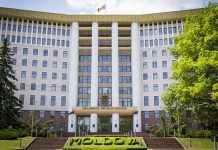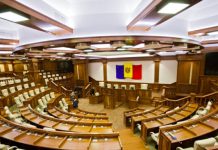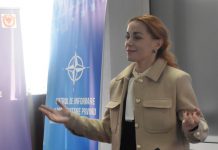1) Regular meetings between political representatives of Chisinau and Tiraspol – Deputy Prime Minister for Reintegration Victor Osipov and Vladimir Yastrebchak. It is relevant that one of the meetings took place right in Tiraspol, on the occasion of launching the working groups. These constant meetings have contributed to solving the current problems and to strengthening the confidence-building measures between the two sides of the Nistru.
2) Informal meetings in the 5+2 format – although meetings were informal, they have enabled all participants of the 5+2 format to be aware of the progress and problems that occur and to suggest new actions that would improve the lives of citizens on both banks of the Nistru. Despite the fact that representatives of Tiraspol consider this format an auxiliary one, it remains the only platform for negotiations with the participation of international actors: the mediators – Ukraine, Russia, OSCE and observers – the EU and U.S. as well as negotiating parties Chisinau and Tiraspol.
3) Filat – Smirnov meetings or football diplomacy – during the two meetings the final aspects regarding the railway traffic Chisinau – Tiraspol – Odessa were completed, as well as railway exports by businesses from the left bank were facilitated. They also discussed the measures necessary to restore normal telephone communication between the two sides.
4) Decisions of the Government to facilitate economic activity in the transnistrian region – changes were made to the Government Decision nr. 1001, according to which transnistrian economic agents no longer have to register each year with the Moldovan authorities. Another change is one that allows the transnistrian economic agents registered in Chisinau to export goods to the EU via the railway section from the transnistrian region, thus reducing transport costs. The resumption of traffic on the train route Chisinau – Tiraspol și Odessa can also be added to this context.
5) Signing the Agreement on the Border Regime between Romania and Republic of Moldova will also be an argument for reducing the so-called stereotypes of Republic of Moldovas Romanization.
6) An open dialogue with the negotiation partners – one of the important elements for the transnistrian settlement is transparency and openness of the Republic of Moldova in discussions with external partners. In this regard, it is important to note the visit of Deputy Prime Minister for Reintegration, Victor Osipov to all negotiation partners capitals, which contributed to the emergence of the transnistrian issue on the agenda of talks between Russia and the EU.
7) The emergence of the transnistrian issue on the international agenda – in this context we may mention the Medvedev – Yanukovych declaration of May 17th 2010, which despite some speculation contains several good elements for the negotiation process. Also Merkel – Medvedev Memorandum of June 5th 2010, which among other things stated as a priority the transnistrian conflict and the transformation of the peacekeeping mission into one under an international mandate. Transnistrian settlement was mentioned in the Declaration of May 17th 2010 by Baroness Catherine Ashton, EU High Representative for Foreign and Security Policy and also during the meeting between Angela Merkel, Nicolas Sarkozy and Dmitry Medvedev in Deauville on 19th of October this year. The emergence of the transnistrian problem on the agenda of great powerhouses, and especially the openness of the Russian Federation creates preconditions for a sustainable and viable settlement respecting the sovereignty and territorial integrity of Republic of Moldova.






